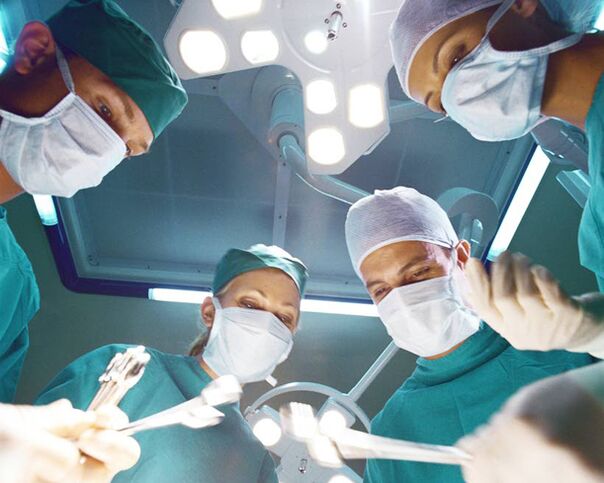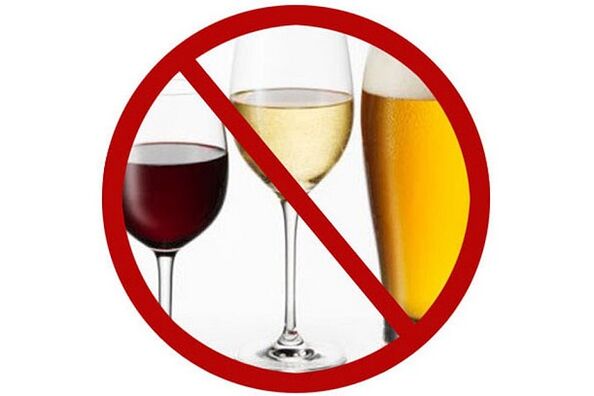Surgery is a serious manipulation that must be properly prepared. All recommendations in this regard should be given by a specialist.
Special attention should be paid to diet and alcohol consumption after surgery. Indeed, in some cases, even small amounts of ethanol in alcoholic beverages can endanger one's health and even one's life.
To avoid harming your body and helping it to recover early, you should follow the tips given in this article.

Are anesthesia and local anesthesia compatible with alcohol?
Everyone should understand that anesthesia and alcohol are unique concepts. And there are good reasons for that. To begin, let's understand what types of anesthesia are - these are local and general anesthesia.
Anesthesia is the insertion of a drug into the human body that promotes a temporary loss of tissue sensitivity. There is a blockage in the transmission of nerve impulses, as a result of which signals do not enter the brain and there is no feedback. Therefore, a person does not feel painful sensations during the operation.
Local anesthesia has a certain duration of action. As a rule, this is the time allotted for the operation, and after an additional 2-3 hours. A person gradually withdraws from anesthesia, but after local anesthesia, the effects of alcohol may cease immediately. And this can cause pain that is very difficult to eliminate with the help of medication.
Can I drink alcohol after anesthesia (general)? It is not worth doing this, because it can lead to more serious consequences than the previous situation:
- Severe pain at the site of surgery.
- Tension or weakening of muscle tissue.
- Headache, dizziness.
- Nausea, vomiting and consequent thirst.
- Anaphylactic shock.
- Disorders of the nervous system.
Drink alcohol after surgery and the possible consequences
For some reason, doctors do not recommend drinking alcohol after surgery. And it's not about the first day or week after the procedure. The period of determination can last several weeks or even months. Its duration depends on the complexity of the procedure and the patient's state of health.
Before or at the end of the operation, the attending physician gives the patient certain recommendations. These include lifestyle, nutrition, alcohol consumption and more. And not only that, it allows them to avoid undesirable consequences and complications.
Why is it forbidden to drink alcohol after surgery:
- To use anesthesia incompatible with alcohol. Otherwise, there will be a major blow to health, which can affect the functioning of systems and vital organs.
- Prescribing antibiotics for postoperative rehabilitation. They are also incompatible with alcohol. In addition, it is worth giving up strong drinks for at least a week at the end of the course. Otherwise, their impact can be minimized.
- Weak tissue treatment. This can be triggered by drinks that cause fermentation processes in the body. There may be beer. Therefore, it is better to give it up.
- Weakening of the body's immune defenses. If you start drinking alcohol the day after surgery, you can damage your immune system. The result will be an exacerbation of latent diseases or chronic pathologies.
- Blood clotting disorder. Small amounts of ethanol entering the body can cause internal bleeding, weak and long-term improvement of the affected skin.
In addition, some surgeries completely rule out the use of ethanol in any form. Because it can cause significant damage to the body and affect the quality of human life in the future.
Experts agree that the body needs time to recover after surgery. And for this it is necessary to create appropriate conditions - to follow a proper diet and to give up alcohol completely for at least 30 days.

Approximate time of alcohol consumption after surgery
As already mentioned, the duration of alcohol consumption depends on the patient's health status and the complexity of the operation. Therefore, it is difficult to determine exactly when it can be used. The doctor should give any advice on this matter, to whom to ask this question.
How long after the operation can you drink alcohol (approximate conditions):
- Alcohol after laparoscopy - in some cases can be completely banned. This is because after laparoscopy, people have to take certain medications for the rest of their lives to keep their body normal. Almost all are incompatible with alcohol. If the gallbladder is removed, alcohol should be avoided altogether. You can get a small amount of alcohol a month and a half after the laparoscopy in the gynecological department.
- The time to drink alcohol after laparotomy is the same as before.
- Drinks containing ethyl alcohol should be treated with extreme caution after heart surgery. You should not abuse them, as they can cause serious problems - heart failure, stroke, heart attack. If there are no complications after the operation, alcohol can be given 3-4 weeks after the operation.
- The optimal period of abstinence from alcohol after eye surgery is 3 months. This period is sufficient for complete recovery or pain relief. Why exactly 3 months? The fact is that in most cases, the rehabilitation period lasts from 1 to 3 months. At present, patients are prescribed restorative drops or tablets, and almost all of them are not compatible with alcohol.
- Plastic surgery - it is recommended to abstain from alcohol for 2 to 4 weeks. If there are any complications or if the patient is prescribed a course of rehabilitation, it may take several months.
- It is not recommended to drink alcohol after removal of the pancreas. Especially in the first 2-3 years after surgery.
- Removal of appendicitis - alcohol, like some foods, is strictly prohibited for 3 weeks.
- Surgery to remove the tumor - alcohol is taken only with a doctor's permission. In fact, drugs that are forbidden to take with alcohol can be prescribed to restore the body.
All of the above conditions are conditional and are prescribed only by the attending physician. It is worth remembering the danger to the body before taking another alcoholic beverage. It weakens after the operation, needs to be restored and the recommendations of the specialist are followed. Therefore, do not overload with ethanol, which will significantly prolong the rehabilitation period.
























